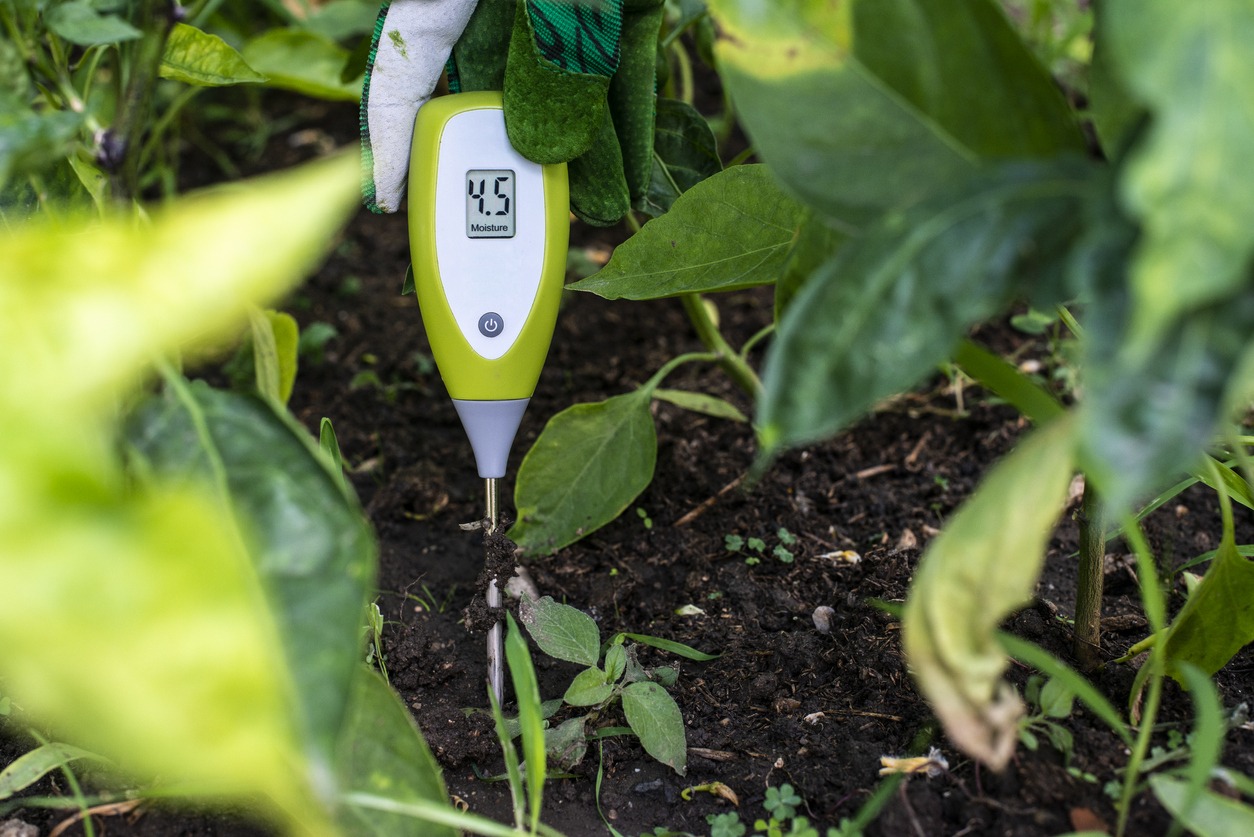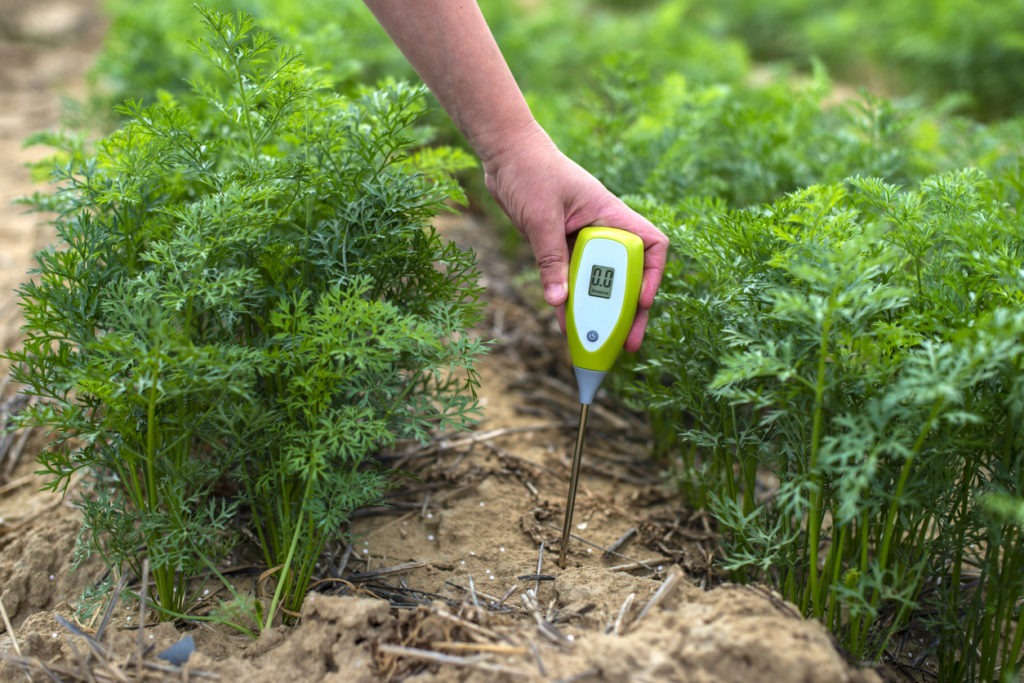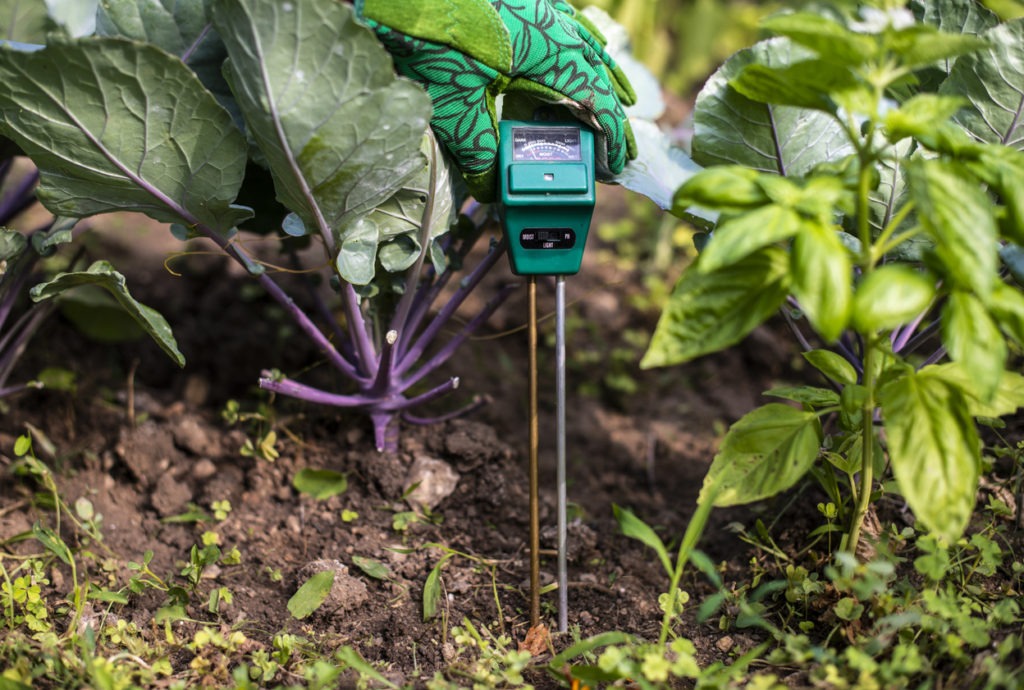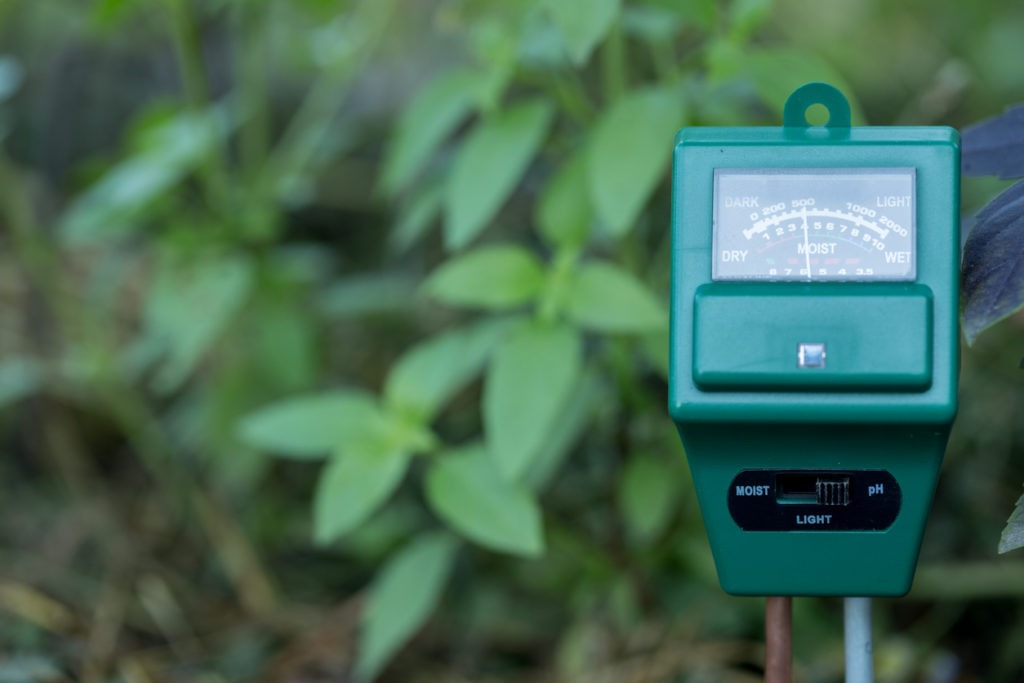A soil moisture probe measures the water content or the moisture in the soil. This device does not directly measure the moisture in the soil as this would require removing, drying, and weighing the soil sample but rather indirectly by measuring some other properties of the soil such as electrical resistance or interaction with the neutrons.
It’s as simple as driving the soil moisture probe into the soil and waiting for sixty seconds. After sixty seconds, the device will come up with a reading. It’s a much more accurate way to check soil moisture than the old-fashioned way of prodding your finger into the soil. As such, this device comes with many benefits as well as some limitations.
Benefits of a Soil Moisture Probe
Let’s dive into some of the benefits farmers or gardeners can attain by using a soil moisture probe.
Helps with Decision-Making
Soil moisture probes are a decision-making tool. Soil moisture-based irrigation scheduling is more practical for farmers, and with easy-to-deploy tools such as the soil moisture probe, farmers can make profitable and efficient irrigation decisions when they have accurate information on soil-water conditions.
Soil moisture probes address the following questions a farmer has:
- What is the most efficient irrigation schedule?
- Is there sufficient water infiltration in the soil during and after irrigation?
- Is the water being applied insufficient, adequate, or excessive?
Leads to Better Yields
Using a soil moisture probe or sensor can also lead to optimal crop yield. As a plant grows, its water needs vary over time. With a soil moisture sensor, you do not have to guess but will rather receive accurate information about the water content. Armed with this information, you can supply the exact amount of water these plants need and grow stronger and healthier plants.
This benefit is even more important for plants that are particularly sensitive to changes in soil moisture levels. As such, with a soil moisture probe, you are optimizing the growth conditions of your plants, reducing the chances of crop disease, and increasing the chances of a good yield.
Understand Your Soil
Using a soil moisture probe will allow you to understand your soil much better. Comparing the soil moisture readings from the probe with the recommended thresholds and tracking this data over time will let you figure out how your soil functions as the data will start to reveal a pattern.
This understanding will also lead to the identification of newer crop opportunities, better yields with current plantations, and all in all, effective & efficient irrigation management. On top of that, you can also study your soil’s relationship to irrigation and water-storage capabilities of your soil.
Saves Money
With a soil moisture probe, you will know what resources (such as water) to use and when to use them in order to maintain the recommended level of soil moisture. This will allow you to save your water bills but also lead to less water wastage and is better for the overall environment.
Easy to Use
The soil moisture probe does wonders for your plants by providing crucial information. Although the mechanics behind the device’s functioning are complicated, using it is as easy as driving it down the soil and waiting for a minute for the results.
Affordable
With so many benefits that a soil moisture probe offers, one may expect such a device to be expensive. However, soil moisture meters are very affordable. Their price ranges from $5 to $200 depending on different features and your requirements.
Limitations of a Soil Moisture Probe
Although the benefits of using soil moisture probes are plenty, you should be careful with using one when making irrigation decisions. Let’s have a look at some of the limitations of using soil moisture probes.
Field Variations
It is important that you conduct some preliminary investigations of the soil features before using your probe. These preliminary investigating features include soil texture, depth, and hydraulic characteristics. This is because there are variations in the soil and placing your sensor in the wrong area can give you erroneous results.
We recommend that you place your soil moisture sensor in an area that accurately reflects the soil water conditions in the root zone. However, if there are significant variations in the field, then you may need to use multiple soil moisture probes to receive more accurate results.
Wear and Tear
With regular changes in the soil layers, it is entirely possible that your soil moisture probe may see damage to some crucial parts that may limit its functioning.
Since most of the soil moisture sensors available in the market today are essentially maintenance-free, no attention is paid to their wear and tear. Often problems in the soil moisture probe readings occur due to corrosion in the contacts, dissolution of the matrix material, and poor contacts between the electrodes. You may also see inconsistent readings from your soil moisture sensor, this may be due to a gap between the sensor and the soil and also due to unexpectedly high electrical resistance within the probe.
A Summary
Let’s have a look at the summarized version of pros and cons of using a soil moisture probe:
| Pros | Cons |
|
|
Frequently Asked Questions (FAQ)
How does a soil moisture probes work?
Most common soil moisture probes on the market are FDR and TDR.
FDR stands for frequency domain reflection which uses the principle of electromagnetic pulse to obtain soil volumetric water content.
TDR stands for time doman reflectance which uses a waveform against a transmission line to measure the soil moisture. The response time of the TDR principle is about 10 to 20 seconds which makes suitable it for mobile measurement and quick assessment of the soil moisture level.
Are soil moisture probes expensive?
No, soil moisture probes are generally inexpensive. Their prices range from $5 to $150 depending on the features and your requirements.
What is the soil moisture measured in?
It is measured as % of the water out of the total soil’s weight or inches of water per foot of soil.
Why is using a soil moisture probe important?
Monitoring soil moisture is important as moisture indicates the health of the soil and directly affects the development of plants.
What is the unit measure used in a soil moisture probe output?
The unit measure used in a soil moisture probe output depends on the power supply and battery used in the probe.
It can be in RS485, 4-20ma, 0-5v, 0-10v, and Lora output.
How much area can a soil moisture probe cover?
The area covered by a soil moisture probe depends on the sensor. However, a majority of probes can cover an area of 1 to 2 acres. The area covered also depends on neutrons, resistance, dielectric, weather, and ambient temperature.
How to keep your soil moisture probe well-maintained?
Fully insert the stainless steel probe completely into the soil, do not penetrate when you feel any rocks, and do not inflict any damage on the probe needle. Avoid direct sunlight to reduce the chances of damage to the housing of the probe. Do not drop or violently hit the sensor.
How to calibrate a soil moisture probe?
You can calibrate your soil moisture probe by comparing it with a known performing instrument under real-life conditions.
Conclusion
Effective and efficient management of your crops and plants is a cumbersome task, especially without reliable data about soil moisture levels. However, with a soil moisture probe, you can make data-driven decisions that not only lead to better yields but also allow you to understand your soil much better. It is important, however, that you only use soil moisture meters as only an aid to your decision-making because of the limitations that may come with using a soil moisture probe.



